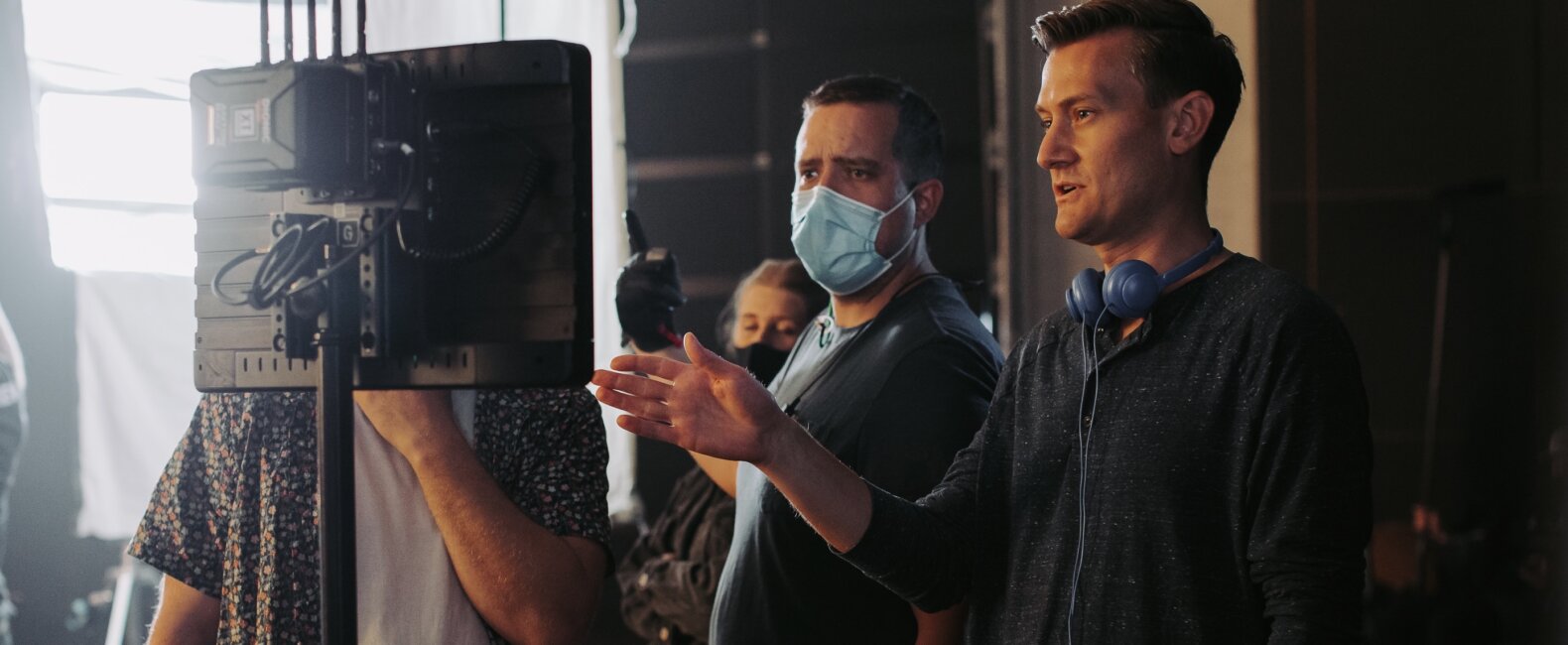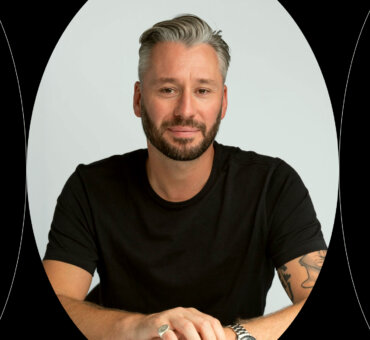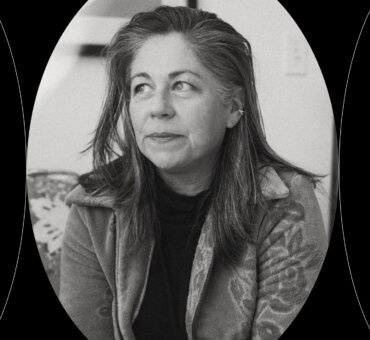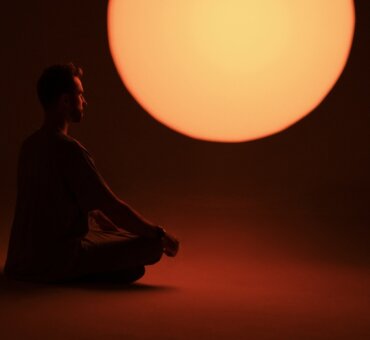LA-based director Corry Wiens’ unique style lives in the intersection of story and grit, resulting in gripping films that leave a lasting impact. Hear more from the award-winning filmmaker on what keeps him inspired, the role music plays in his films, and how he utilizes Musicbed to elevate his work.
Musicbed: What sparked your passion for filmmaking/storytelling?
Corry Wiens: I started messing around with a camera and making short films with my friends when I was a teenager. We would run around and make these really terrible films, but we would be so excited about them that we would invite our whole school to come to a premiere that we would put on for them. Let’s be real—making movies is just fun. It wasn’t until I saw the collaborative power of filmmaking to move hearts and minds that I really considered it for a career. There truly is no other medium quite like film that can bring together people from various disciplines to create one work of art together.
What keeps you motivated and creatively inspired?
As a freelancer, you have to be self-motivated and driven. No one is pushing you to be better or picking up the slack for you. If you create something and it’s just mediocre, your client will think ‘Well, I guess this is the best Corry can do’ and they might not come back to you again. You have to dig deep, analyze every decision you’re making, and ask yourself ‘Is this the best possible version of this? Or do I have more left to give?’ At the end of the day, it’s all about taking a brief and creating something that makes you excited and that you would want to see.
Music is also a huge creative influence for me. I was recently feeling stuck on a creative brief for a project when a composer friend of mine, Roary, sent me a track to check out that he was working on. The music alone sparked some new ideas and gave me what I needed to bring this story to life. Sometimes the right track can help you get out of your head and let your mind wander.
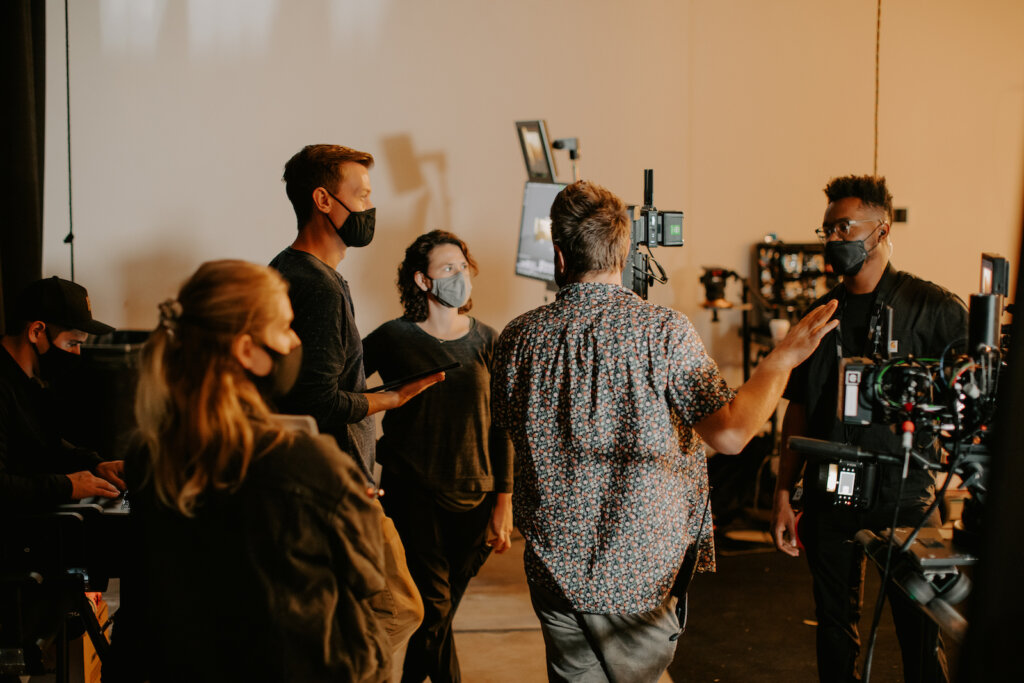
What makes a story visually appealing? What role does music play in storytelling?
A story is visually appealing when all aspects of the film work together to communicate and drive emotions toward a singular goal. Music, as well as all aspects of sound, play a HUGE role in this. When it’s done right, you might not even notice it because the entire piece works cohesively together, but sound really is half the experience for the viewer.
What elements do you think are essential for crafting a compelling story?
All compelling stories center around understandable characters that need or want something so bad that we, the audience, want that thing for them too. The most important, and sometimes the most challenging, aspect of this is creating those understandable characters.
A pet peeve of mine is when people think they need to make relatable characters. There’s no way that every audience member sees themselves as a character on screen. But if we can at least understand their decisions, even if we don’t necessarily agree with them, we can enter into the story with those characters and feel what they feel.
The other thing that’s crucial for crafting a compelling story is trust. People do their best work when they are given direction and the creative freedom to bring themselves into their work. Ideally, this trust will be imparted from the brand to the director, and then from the director down to each crew member. Plus, no one likes a helicopter boss.
How important is music in your work?
My initial thought is ‘Just like how you can’t have a good movie with a bad script, I don’t think you can have a good film or commercial with bad music.’ But then I remembered an article about how the Temu commercial was the most effective Super Bowl ad this year. I think I need to qualify my initial thought by saying that what is “good” from a creative standpoint might not be “good” from a communication standpoint. The difference in these two measures of success is an ever-present struggle working as an artist in the commercial world. It’s a bit of a tangential thought, but I think it’s important to note.
As a creative, music is important to the work. Specifically for short-form work, it can set the entire tone and pace for the piece. When done right, it can take things to a whole new level! One of my favorite things is when I’m searching for music and I find something that surprises me and makes me wonder, ‘What if I took this project in a completely different direction?’ These little surprises are what make filmmaking so enjoyable. It’s bringing the best of what so many talented artists have to give and putting them together in a way that any one person couldn’t have gotten to on their own.
What advice would you give other filmmakers/creators just starting their careers?
Just keep creating! Keep pushing yourself. Keep striving to make the things that you want to see. It can be a tough industry to make it in, but if you’re creating for yourself first and foremost, then you’ll never fail.
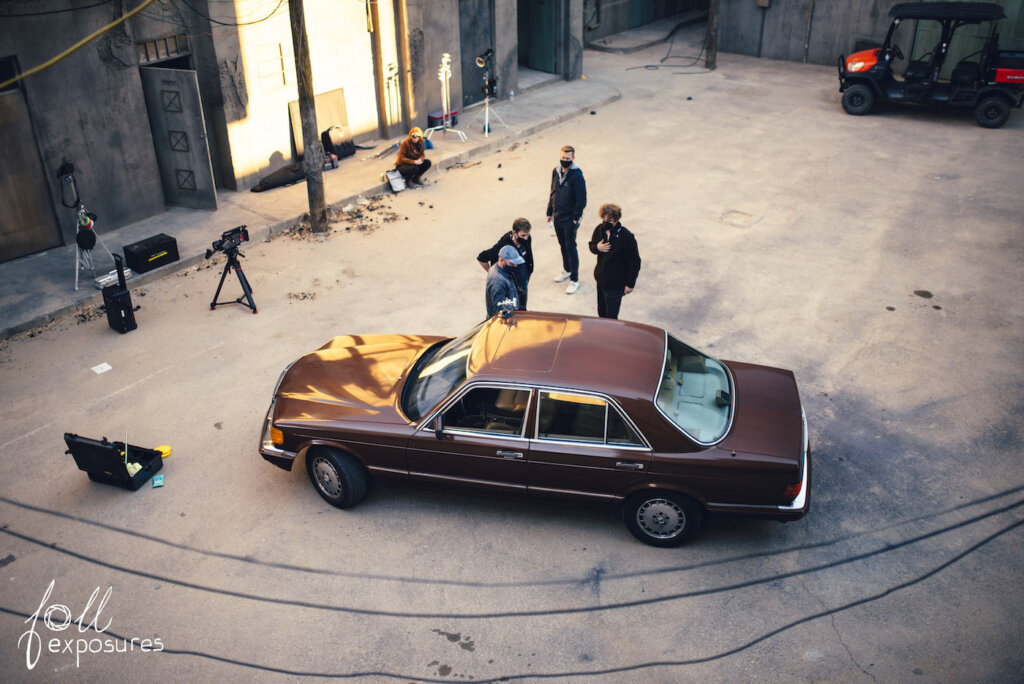
How do you balance pushing boundaries creatively and delivering what your client wants?
It’s definitely a balancing act! Remember that the client and agency both likely understand their audience much better than you do. When challenging feedback comes in that feels like it’s destroying the creative, it’s good to be mindful of this because they are the experts of the audience. Ideally, you can take that feedback and creatively address their concerns, but always make sure to listen attentively and don’t take feedback like this personally.
The other thing is to make sure your creative choices are intentional. Don’t do something cool just for the sake of it being cool. Make sure that every choice you make has a purpose behind it. You might not win every battle, but at least being armed with intentionality can help you justify your choices when the time comes.
What is the most challenging aspect of being a filmmaker/creative?
The most challenging aspect of being a filmmaker is combating self-doubt. I think this is something that we all struggle with (despite all our shiny Instagram posts) but that very few people talk about. Criticism is part of the job, and if you’re not careful, the anxiety it produces can start to eat away at you. I’m certainly not an expert at dealing with this, but what I try to do is learn from the criticism, take what can from it, and then move on. You are more than your work.
What’s your favorite project that you’ve worked on?
My favorite project is a short film I created called Defy the Odds. It’s a 3-minute short based on the life of Bill Lester, one of the first Black NASCAR drivers to compete at the highest levels of the sport. It was an incredibly ambitious project with close to no budget. Through some miraculous events (and calling in lots of favors!) we found the exact make and model of the car that Bill drove, captured car-to-car stunts, and even filmed a car flip. It was definitely one for the books!
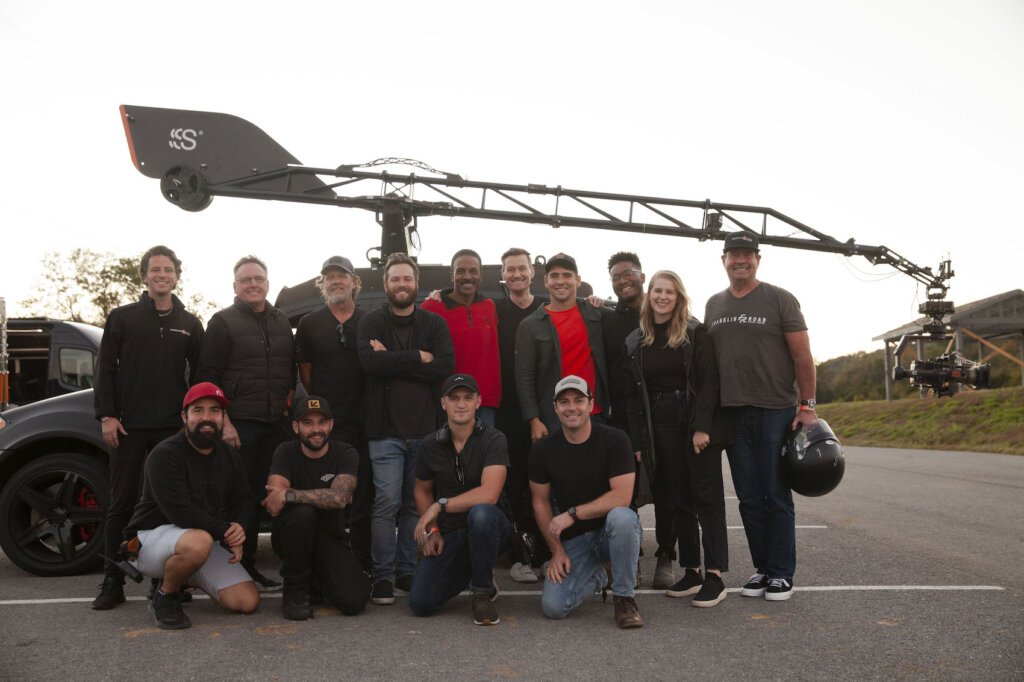
How do you search for music on Musicbed? What are some tips that you’d give other filmmakers to search on Musicbed?
When searching for music on Musicbed, I generally start with the genre and mood of the project I’m going for. Then I go down the list until I find something along the lines of what I’m looking for and I’ll typically explore other music from that artist, or look at the similar songs that Musicbed populates the page with. One of my favorite search tools is the “Has Build” option under the advanced settings. This can really help me to hone in on exactly what I’m looking for!
Why do you utilize Musicbed in your work?
Searching for stock music was the bane of my existence when editing. Does anyone else recall how painful this experience was about 15 years ago? It really wasn’t until Musicbed came along that this process (and really the whole industry) started to turn around. Now, the first place I go to for music licensing is Musicbed. The quality and number of options available are truly unmatched. Plus, I really feel like Musicbed is a tool built by artists for artists. Their commitment to helping us all grow and learn together has been formative for me over the last decade.
—
Explore a curated playlist of Corry’s favorite music to feature in his films—all available to license for your projects only on Musicbed.















































































